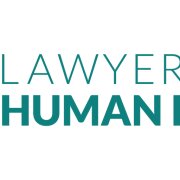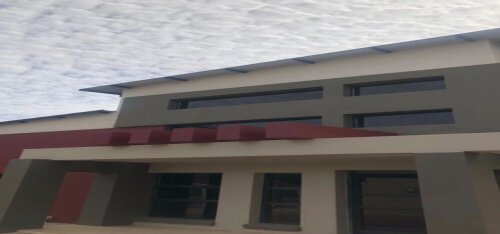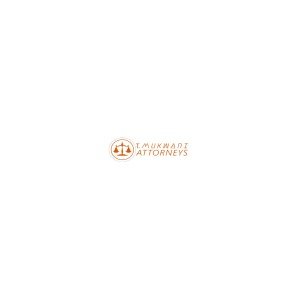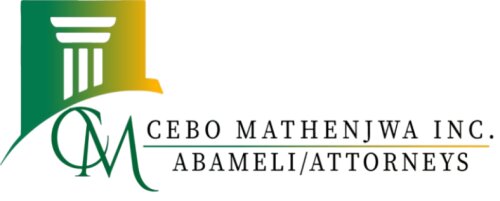Best Education Law Lawyers in Johannesburg
Share your needs with us, get contacted by law firms.
Free. Takes 2 min.
List of the best lawyers in Johannesburg, South Africa
About Education Law in Johannesburg, South Africa
Education Law in Johannesburg falls under South Africa's broader legislative framework that governs education. This area of law involves regulations and policies designed to oversee the education system, including public and private schools, higher education institutions, and special education services. Education law addresses various aspects such as access to education, educational standards, student rights and responsibilities, teacher rights, and administrative procedures. Johannesburg, being a major urban center, reflects these national regulations while also addressing unique local challenges such as disparities in educational resources and facilities.
Why You May Need a Lawyer
There are several situations in which individuals or institutions might seek legal assistance in the realm of Education Law:
- Student Rights Violations: Issues such as unfair disciplinary actions, bullying, or discrimination may require legal intervention to ensure student rights are protected.
- Admission Disputes: Conflicts regarding school admissions, both at the entry level and for advanced classes or special needs programs, can necessitate legal advice.
- Teacher Employment Issues: Legal guidance may be needed for matters involving contracts, workplace disputes, or rights under employment law for educators.
- Special Education Needs: Parents may require assistance to secure appropriate accommodations or identify violations of children’s rights to adequate education under special education mandates.
- Institutional Compliance: Schools and universities may need help ensuring they comply with local and national education standards and policies.
Local Laws Overview
Education Law in Johannesburg is primarily governed by national legislation, but there are key local and national elements that are particularly important:
- The South African Schools Act: Governs the provision of education across South Africa, stipulating compulsory education parameters, school governance, and student rights.
- Employment of Educators Act: Addresses employment conditions, including hiring, appointments, and handling of misconduct for educators.
- Constitutional Rights: The Constitution of South Africa guarantees the right to education, which is fundamental in addressing local disputes or issues.
- Gauteng Department of Education Policies: Implement additional regulations and policies specific to the Johannesburg and broader Gauteng region.
Frequently Asked Questions
What is the legal age for compulsory schooling in South Africa?
According to the South African Schools Act, schooling is compulsory for children from the age of 7 (grade 1) until the age of 15, or the end of grade 9, whichever comes first.
Can public schools charge tuition fees?
Public schools can charge fees, but there are provisions for no-fee schools in poorer communities or instances where parents can apply for a full or partial exemption based on their economic circumstances.
What rights do students have if they are expelled?
Students have the right to due process, which includes a formal hearing before a school governing body can expel a student, ensuring they have the opportunity to present their side of the case.
How are bullying cases handled in schools?
Schools have the responsibility to create a safe environment. Any instances of bullying should be addressed according to the school's code of conduct, and legal recourse can be sought if the matter isn't resolved internally.
Are there laws protecting teachers against unfair dismissal?
Yes, the Employment of Educators Act and broader South African labor laws protect teachers against unfair dismissal and outline processes for grievances and disputes.
What are the rights of disabled students in Johannesburg's educational system?
Disabled students are entitled to access and participate in education without discrimination under the rubric of inclusive education policies, encompassing necessary accommodations in schools.
How does one challenge a school’s admission decision?
If a parent or guardian believes that a school admission decision was unjust, they can appeal the decision through the school governing body or take the matter to the Gauteng Department of Education.
Does Johannesburg have policies on homeschooling?
Yes, parents who wish to homeschool must register with the provincial education department, ensuring their program meets the required educational standards.
What is the process for resolving disputes over educational resources?
Disputes over resources can be initially addressed through engagement with school management or governing bodies, progressing to legal channels if necessary.
Can private schools be held accountable to the same standards as public schools?
While private schools maintain some operational freedoms, they must comply with the national educational curriculum and standards as per accreditation requirements.
Additional Resources
For further assistance in Education Law, consider reaching out to the following bodies:
- Gauteng Department of Education: Offers guidance and resources for parents and educators.
- South African Human Rights Commission: Can provide information and mediation on human rights within education.
- Legal Aid South Africa: Provides legal assistance to those who qualify based on financial need.
- Equal Education: A movement advocating for quality and equal education in South Africa.
Next Steps
If you need legal assistance in Education Law, consider the following steps:
- Consult an Expert: Schedule a consultation with an education law attorney to discuss your specific case and receive professional guidance.
- Gather Documentation: Collect all relevant documents and evidence related to your case, such as school correspondence, medical assessments, and statements from witnesses.
- Evaluate Legal Aid Options: If necessary, investigate the availability of legal aid services to determine if you qualify for assistance.
- File Necessary Appeals or Applications: If your case involves appealing decisions or filing legal claims, ensure that you understand timelines and procedures with your attorney's help.
Lawzana helps you find the best lawyers and law firms in Johannesburg through a curated and pre-screened list of qualified legal professionals. Our platform offers rankings and detailed profiles of attorneys and law firms, allowing you to compare based on practice areas, including Education Law, experience, and client feedback.
Each profile includes a description of the firm's areas of practice, client reviews, team members and partners, year of establishment, spoken languages, office locations, contact information, social media presence, and any published articles or resources. Most firms on our platform speak English and are experienced in both local and international legal matters.
Get a quote from top-rated law firms in Johannesburg, South Africa — quickly, securely, and without unnecessary hassle.
Disclaimer:
The information provided on this page is for general informational purposes only and does not constitute legal advice. While we strive to ensure the accuracy and relevance of the content, legal information may change over time, and interpretations of the law can vary. You should always consult with a qualified legal professional for advice specific to your situation.
We disclaim all liability for actions taken or not taken based on the content of this page. If you believe any information is incorrect or outdated, please contact us, and we will review and update it where appropriate.
















